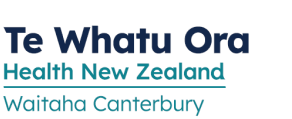What does it do?
Cycloserine is an antibiotic used with other medicines to treat tuberculosis (TB).
Before you start
- Tell your doctor if you have kidney or mental health problems, or if you have ever had a seizure.
- Tell your doctor if you are pregnant, planning to become pregnant, or breastfeeding.
How should you take it?
Take cycloserine regularly as directed with a glass of water. Keep taking it until the course is finished.
It is important to take it regularly. If you often forget to take it, it may not work as well.
What if you forget a dose?
If it is nearly time for your next dose, skip the missed dose and take your next dose at the usual time. Otherwise, take the missed dose as soon as you remember. Do not take two doses at the same time.
Can you take other medicines?
Tell your pharmacist or doctor about all medicines or treatments that you may be taking, including vitamins, herbal products or recreational drugs.
What side effects might you notice?
| Side Effects | Recommended action |
|---|---|
|
Seizures |
Tell your doctor immediately |
|
Unusual behaviour or thinking, confusion Shaking Headache, dizziness, drowsiness |
Tell your doctor |
If you notice any other effects, discuss them with your doctor or pharmacist.
Other information:
- Limit alcohol intake while you are taking cycloserine. Alcohol can increase the chances of side effects.
- Your doctor will prescribe pyridoxine (vitamin B6) to help prevent side effects of cycloserine.
- You will need regular blood tests while taking cycloserine to check how well your kidneys are working.
- Cycloserine is not registered for use in New Zealand. Discuss with your doctor.
This leaflet contains important, but not all, information about this medicine.
Prepared by the MyMedicines Committee at Christchurch Hospital, Te Whatu Ora - Waitaha, New Zealand. April 2025
For more general information about this sheet and its contents, see: What does a My Medicines sheet cover?
Te Reo Māori
Te Reo Māori information sheets supported by Health Quality and Safety Commission New Zealand
Web links for this sheet in different formats
Click on buttons to copy web addresses for this leaflet:
If your browser does not automatically copy these links use its copy command instead.
About My Medicines
My Medicines Patient Information Leaflets (PILs) contain important, but not all, information about the medicines they describe.
For more information about the sheets, see: What does a My Medicines sheet cover?
My Medicines is developed by a team at Te Whatu Ora – Waitaha. Our team is made up of doctors, pharmacists, and a non-medical person to help us keep to plain language. We also discuss our information with specialist health professionals or groups when needed

